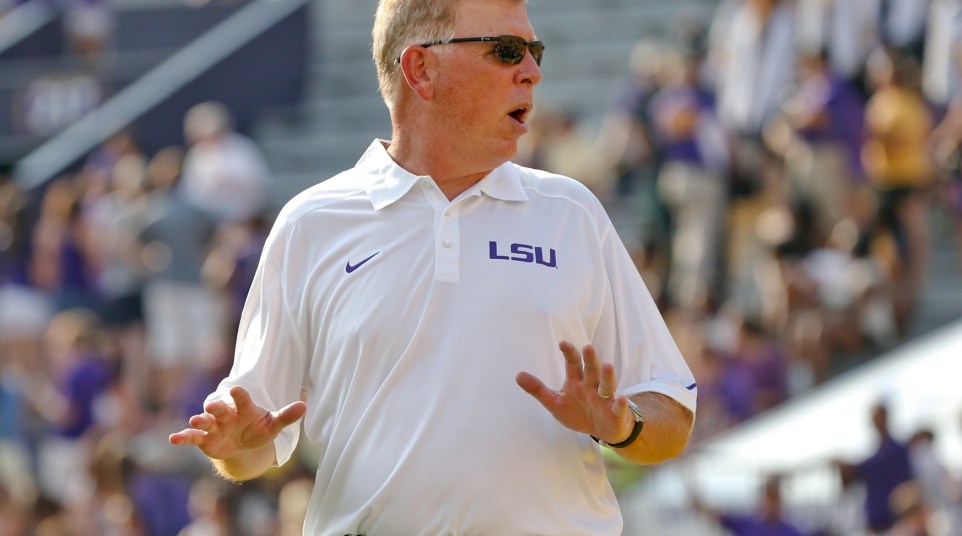Cam Cameron has to put the pieces together for LSU
Cam Cameron is, without question, the most accomplished offensive coordinator in the SEC. Over the course of a 31-year career, he’s been a head coach at both the college and professional levels, he’s coached Pro Bowlers, All-Pros and future draft picks alike.
That’s part of what made the 2014 season such a frustrating one in Baton Rouge. Cameron has proven he can take talented quarterbacks and help make them great, but he couldn’t mold either of LSU’s two young quarterbacks into competent passers last fall.
“I have to be honest with myself first. I think I could have done a better job,” Cameron said at an appearance in December. “I’m evaluating how I’m teaching and try to streamline some things to help Anthony (Jennings) play better, help develop Brandon Harris. I think both of our guys are going to be really productive quarterbacks, but I’ve got to do a better job.”
The teaching part has already come up this spring. Harris has been vocal this spring about how much coaching he’s received from Cameron, saying he’s “over-utilizing” the coach to soak up the offense as much as possible and admitting he didn’t do that quite enough last season. Meanwhile, Les Miles has praised Jennings throughout the spring, saying the rising junior has been sharp and “better on more days” than Harris as LSU goes through spring practice.
While the teaching aspect is good, as the two quarterbacks need the mentorship from their OC, a bigger question is whether or not Cameron can adjust his offensive philosophy to complement LSU’s quarterbacks instead of trying to fit them into a mold they’re not suited for.
When Cameron first got to LSU before the 2013 season, the Tigers had Zach Mettenberger on the roster. The future Tennessee Titan was a perfect fit in Cameron’s offense alongside two downfield wide receivers in Odell Beckham and Jarvis Landry, and the group formed LSU’s most prolific passing offense of the Miles era.
That’s the type of quarterback Cameron worked with his whole career in the pros, guys with big arms who could get the ball downfield in a hurry. Drew Brees, Philip Rivers and Joe Flacco were all beneficiaries of Cameron’s offense.
Harris and Jennings are not that type of passer. While Harris has a huge arm, neither has the kind of accuracy or ability in the pocket to stand in and deliver consistent strikes downfield.
LSU is obviously going to be a run-first team again in 2015, with Leonard Fournette emerging as a player truly worthy of Heisman buzz by the end of last season, and the Tigers have plenty of talent behind him. They may not run it nearly 70 percent of the time again in 2015, as they did in 2014, but run it they will.
When LSU does throw, will Cameron be able to take advantage of the skills his quarterbacks do have? The Texas A&M game last fall provided a glimpse into what the offense could look like, with zone-read looks that gave Jennings the chance to get out in space to throw or run. With a loaded corps or wide receivers, LSU has to utilize the talent on hand by throwing effectively.
On top of that, defensive players have talked this spring about how Cameron has thrown a variety of new looks at them, things they haven’t seen the Tigers offense do before.
Could all of that mean Cameron is ready to adapt to the talent he has on hand? While getting major improvement out of the quarterback position is vital to LSU’s success in ’15, Cameron’s skills as a game planner will be close behind.

